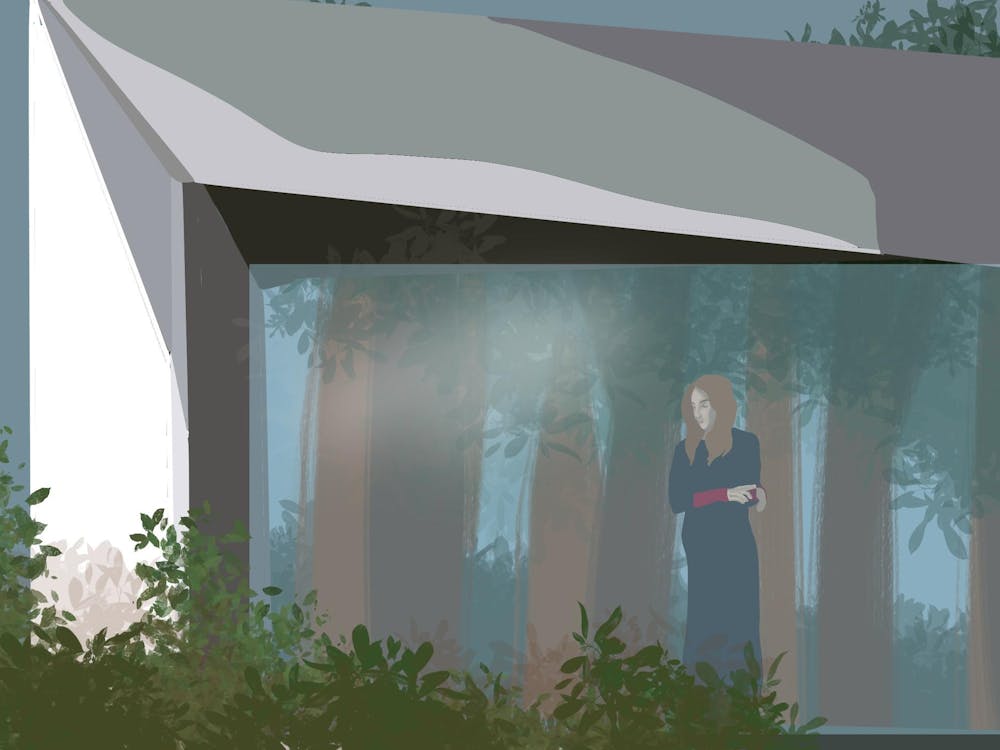After a five-year hiatus, Deerhunter presents their eighth album, “Why Hasn’t Everything Already Disappeared?” Highly anticipated by fans, the album delivers the result such a lengthy break implicitly promises.
Released on Jan. 18, the indie rock band’s newest record pushes a timely message for the political climate of 2019, a new year in an ever-changing world. “Why Hasn’t Everything Already Disappeared?” was recorded in Marfa, Texas and produced alongside Welsh singer-songwriter Cate Le Bon, who sings on the track “Tarnung.” Marfa — the small desert town known for its arts scene — fits the sound on the sometimes fatalistic, bleak and expansive 10-track album.
Deerhunter was founded in 2001 in Atlanta, Georgia by frontman Bradford Cox, who has also produced solo content under the name Atlas Sound. Cox, the moderately famous indie persona, is well-known for both his personality and appearance. Unlike previous work, “Disappeared” is an album less concerned with personal events and more with the world and Cox’s contemplations with humanity at large.
Before even listening to a single track, the album’s heavy title calls to mind climate change. “Disappeared” features a wide variance in sound, yet remains identifiably Deerhunter through the ambient noise and heavy use of instrumentals, and, of course, Cox’s distinctive voice. While the album tackles large issues and current events, this fact would not be evident from the sound alone.
On “Death in Midsummer,” the opening track and first single, Cox discusses powerlessness and political control, singing, “Your friends have died / And their lives, they just fade away,” and, “Some worked in factories / Worked their lives away.” Cox does not necessarily offer explicit commentary or answers but identifies the problems of contemporary life and mourns the consequences. In a political climate dominated by binaries and angry responses to angry actions, Cox offers a distant and bleak reminder of the consequences of political and social turmoil. The sound, similar in form to many of Deerhunter’s hits, features instrumentals reminiscent of a wasteland, a common theme on this album.
On the track “Element,” Cox’s sometimes-syrupy voice reveals itself more. “Futurism” has more of a pop-sound, yet features lyrics about “burning flowers” and “patient hell.” Such is characteristic of the band Deerhunter — the surface does not reveal what lies underneath, and what lies underneath cannot be easily classified or understood. Cox’s lyrics are complex and not definitive, a refreshing reminder that music and political statements cannot always be summed up by 280 characters.
“Détournement” — French for rerouting or hijacking — is a partially spoken, slow-moving and futuristic track wherein Cox offers greetings to different countries, promising, “Your struggles won’t be long / And there will be no sorrow on the other side.” He asserts, “There is some form of art left” and “time starts to run backwards.” Cox’s futuristic wasteland is not so far-flung after all — the pessimistic world he describes is the same one he lives in. The title of the song about “eternal jetlag” and flying all over the globe suggests that hijacking or rerouting the plane is useless because we have no control and time does not move linearly. Cox addresses abstract ideas, providing little comfort after forcing listeners to address existential questions.
“Tarnung,” the track featuring Cate Le Bon on vocals, is both angelic and mesmerizing, featuring a short but powerful verse sung only once, featuring the lines, “Phase into gold light / I'll fade, why can't I?” Cox references fading several times throughout “Disappearing,” as though fading is the only form by which he can exit the world he inhabits. Cox once again asks questions, proving his maturity and philosophical understanding of the lack of definitive answers to difficult questions.
Cox has stated that he was influenced by Whitney Houston on the penultimate track “Plains,” where he also pays tribute to James Dean, who finished filming the 1956 drama-romance film “Giant” in Marfa days before his death in 1955. At just over two minutes, the high-energy pop track offers haunting lyrics set to a buoyant and animated backdrop.
In this impressive album, Cox proves his talent for complex lyricism and knack for creating catchy songs is not lost, while also identifying the fear and uncertainty of global politics. Cox does not quell the fears he induces, instead using his voice to call attention to the daunting fate of humanity for those who choose to listen.





